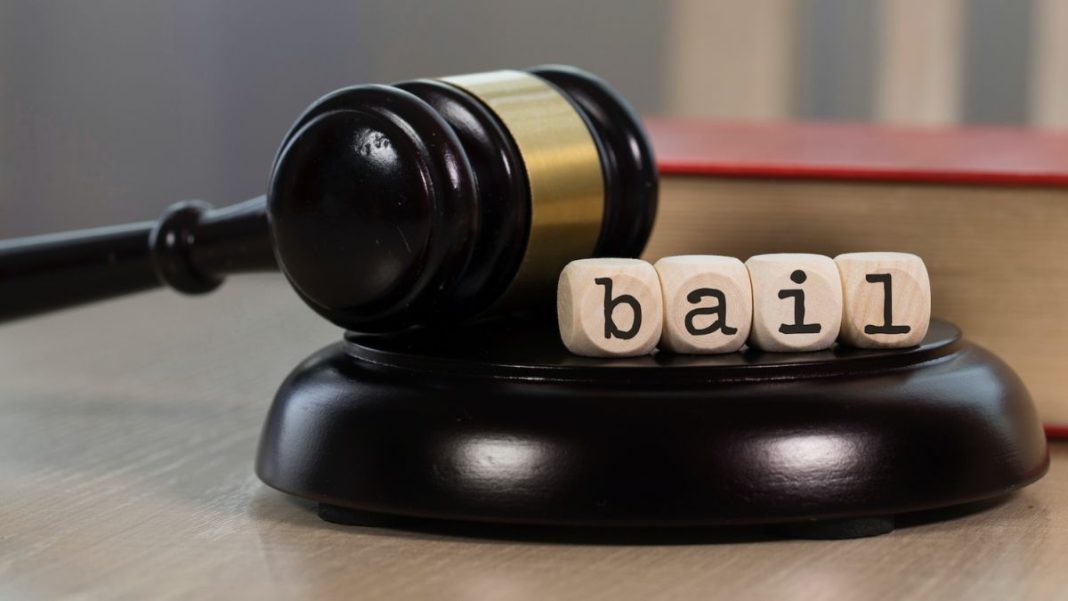By Amit Subhash Dubey
The purpose of bail is to allow the accused person to be released from custody while they await trial so that they can continue to live their life and prepare for their defence. However, granting bail is not automatic, and it is up to the court’s discretion to decide whether or not to grant bail.
This raises a question as to why we need the judges to use their discretion while deciding bail applications, in as much as if we have a standard guideline or a structure wherein the bail applications can be decided. The concept of “bail be the general rule and jail an exception” has gone for a toss in our legal system.
To proceed further, it is pertinent to note that the department of legal affairs asked the Law Commission of India in the year 2015 to examine the need for a bail act in India; however, the law commission of India, vide its report dated 23rd may 2017 decided that there is no need for a standalone bail act and amendments to the relevant statutes can suggest the reforms. This raises again a question of whether it is sufficient to bring amendments or do we have to cure something we have been following for ages.
A few points were considered while preparing the report by the law commission of India, which are as follows;
- That 67 per cent of the prison population is awaiting trial in India. Inconsistency in the bail system may be one of the reasons for the overcrowding of prisons across the country and giving rise to another set of challenges to the Prison Administration and ‘State’ thereto.
- It has become a norm than an aberration in most jurisdictions, including India, that the powerful, rich and influential obtain bail promptly and with ease. In contrast, the mass/ common / the poor languish in jails.
Once we go through the report, which runs into 131 pages, covers all the aspects and majorly the issues pertaining to the bail system in India. However, it must discuss judicial discretion and its requirement in deciding bail applications. With due respect, the solutions are not only amendments to the statute’s provisions. Instead, the same needs to be cured from the root of it, which is to remove the discretion of the judge while deciding the application.
What is ‘judicial discretion’ in the bail context? In the elegant words of Benjamin Cardozo. “The judge is still not wholly free even when he is free. He is not to innovate at pleasure. He is not a knight-errant roaming at will in pursuit of his own ideal of beauty or of goodness. He is to draw his inspiration from consecrated principles. He is not to yield to spasmodic sentiment, to vague and unregulated benevolence. He is to exercise a discretion informed by tradition, methodized by analogy, disciplined by the system, and subordinated to ‘the primordial necessity of order in the social life. Wide enough in all conscience is the field of discretion that remains.”
The discretion vested in judges to grant bail is a crucial aspect of our criminal justice system, but it is a power that must be exercised judiciously, with utmost circumspection. Unfortunately, in recent times, there have been instances of misuse of discretion in granting bail by the judiciary, with judges succumbing to extraneous pressures and influences.
One of the most egregious examples of this misuse is when judges grant bail to accused persons based on their socioeconomic status or political connections rather than the case’s merits. This undermines the principle of equality before the law and the rule of law itself.
As quoted by Lord Camden, “‘ The discretion of a judge is the law of tyrants: it is always unknown, different in different men; it is casual and depends upon constitution, temper and passion.”
This is true; the orders and conduct in deciding bail applications differ depending upon the judge, which is another misuse of discretion when judges grant bail in a casual or cavalier manner. This undermines the rule of law and the principle of protecting society. Removing discretion cures corruption and other biases towards deciding bail. Once the bail applications are heard per the case and the structure, the scope of corruption, biases and further delay can be worked on.
The basic structure must be formed with the guidelines to follow while deciding bail applications. This can be achieved by providing adequate training to judges on the proper exercise of their duties in deciding bail and, as mentioned supra, by setting up transparent and objective criteria for bail.
The only way to remove discretion in bail proceedings is to implement a bail schedule, a set of guidelines that judges must follow when determining bail. Under a bail schedule, bail amounts/conditions would be determined based on the severity of the crime, with higher bail amounts/conditions for more severe crimes and lower bail amounts/conditions for less serious crimes. This will ensure that all are treated fairly and that bail amounts are consistent across cases.
Removing discretion through bail schedules or risk assessment tools could help to ensure a more fair and just system. It is essential to consider each approach’s pros and cons and determine the most effective in a given jurisdiction.
Amit Subhash Dubey is an Advocate practicing in Bombay


